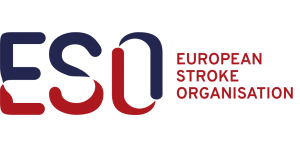Europe comes together to build better clinical trials – The European Stroke Organisation Trials Alliance (ESOTA)
Improvement of international stroke research networks can increase efficiency and reduce waste in clinical trials of stroke treatments. The ESO Trials Alliance (ESOTA) is a new academic initiative led by the ESO Trials Network Committee, on behalf of ESO.
Authors: Diana Aguiar de Sousa and Else Charlotte Sandset
The ESO Trials Alliance (ESOTA) published today an overview of their progress during the first year of activity, which is available for download free of charge, in the European Stroke Journal webpage (https://journals.sagepub.com/doi/full/10.1177/2396987319845589)1.
Promotion of stroke research in Europe is a key aim of ESO
Conducting investigator-led randomised trials is becoming increasingly complex, due to the need for large sample sizes and growing complexity of the regulatory and funding environment. This complex context poses a serious risk of inefficiency in stroke research, unless initiatives to increase collaboration among European stroke researchers are undertaken.
Considering this, the ESO Trials Network Committee established a structure to improve multinational European stroke research collaboration for the long-term – the ESO Trials Alliance (ESOTA)2.
ESOTA – The ESO Trials Alliance
The main goals of ESOTA are to:
- Support European collaboration for stroke research;
- Promote capacity-building for trials research in Europe by educational activities and supporting new stroke research networks;
- Promote stroke trials to funders, policy-makers, and other stakeholders (e.g. patient groups).
During this first year, several important set-up tasks have been achieved:
- Approval of the project by the ESO Executive Committee and Board;
- The first ESOTA symposium, open to all ESO members, held at the 2018 ESO Conference;
- Definition of the main governance and membership structures;
Five founding member networks joined the alliance, from five ESO countries: England, Ireland, Netherlands, Spain, and Switzerland, which include almost 200 hospitals.
Over time, ESOTA is expected to develop gradually, ultimately comprising several hundred affiliated centres. The introduction of this structured approach should facilitate the identification of collaborators for new trials, increasing the efficiency of stroke research and the potential to attract funding. As members of the ESO Young Stroke Physicians and Researchers committee, we also see great potential within ESOTA for learning opportunities and mentorship of the future clinical trialists in the stroke field.
Overall, ESOTA should serve the ultimate goal of improving outcomes for patients.
- Kelly P, Salman RA, Arsovska A, Dippel DWJ, Fischer U, Ford GA, Fuentes B, Lemmens R, Marshall JC, Nederkoor PJ, Robinson T, Weimar C, Berge E, ESO Trials Network Committee, Esota Steering Group. Building a European ‘network of networks’ for stroke clinical research – The European Stroke Organisation Trials Alliance (ESOTA). Eur Stroke J 2019. https://doi.org/10.1177/2396987319845589
- Berge E, Ford GA, Stapf C, et al. Are there opportunities for a closer collaboration on clinical stroke research in Europe? Eur Stroke J 2018; 3: 22–28. https://doi.org/10.1177/2396987317747456

